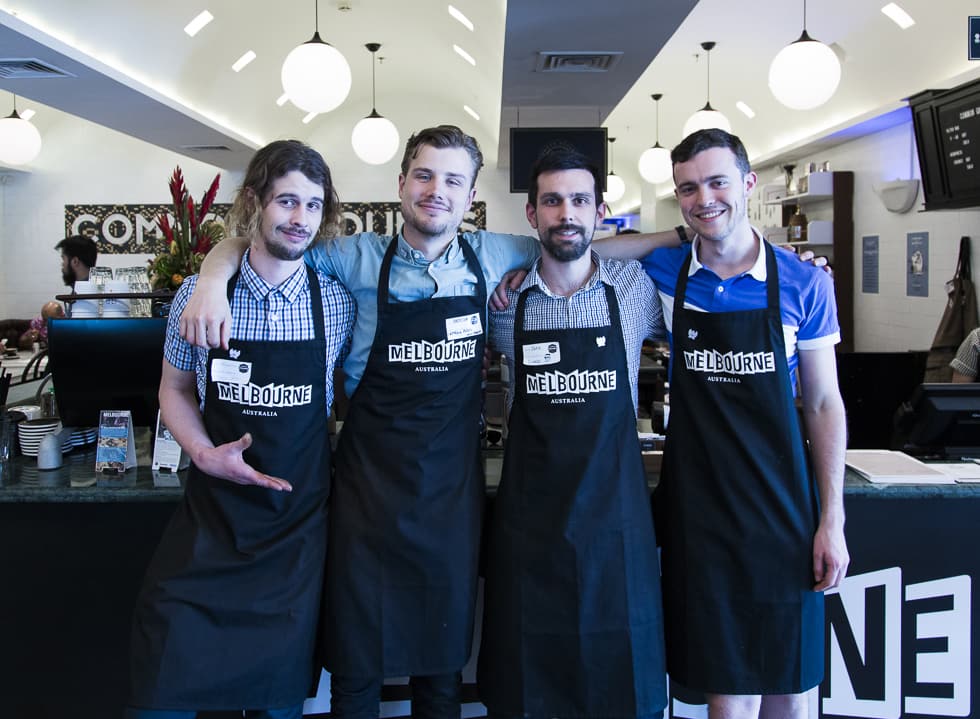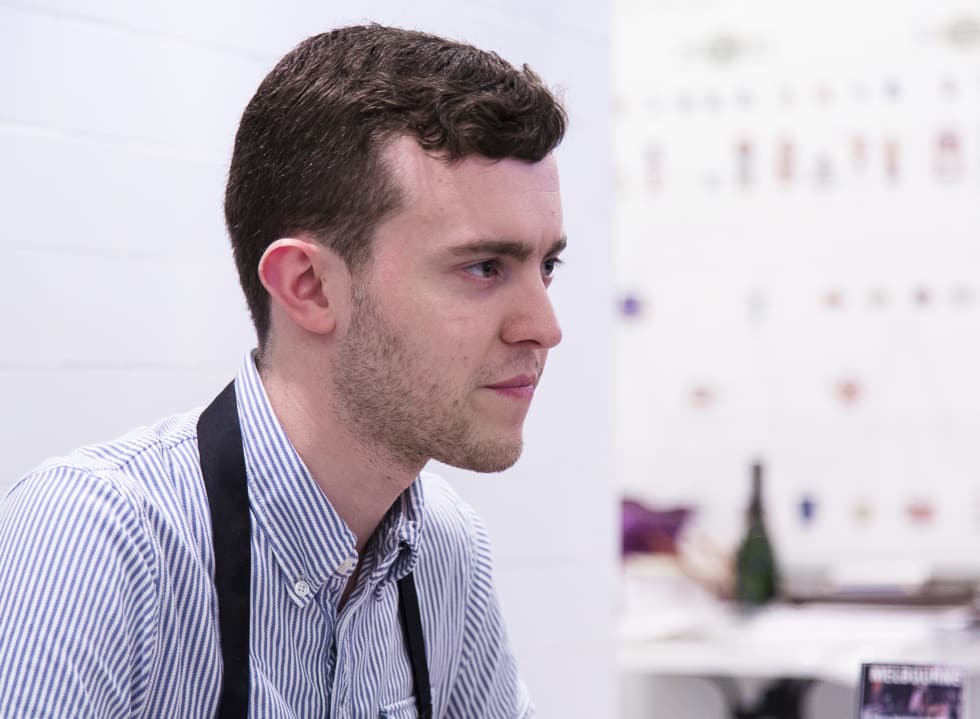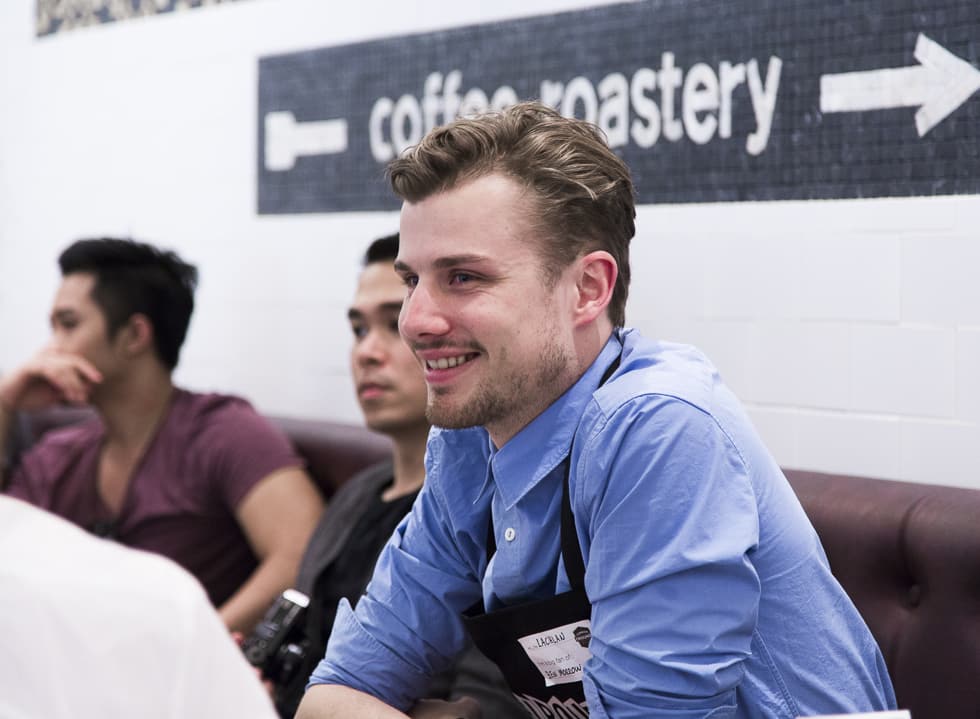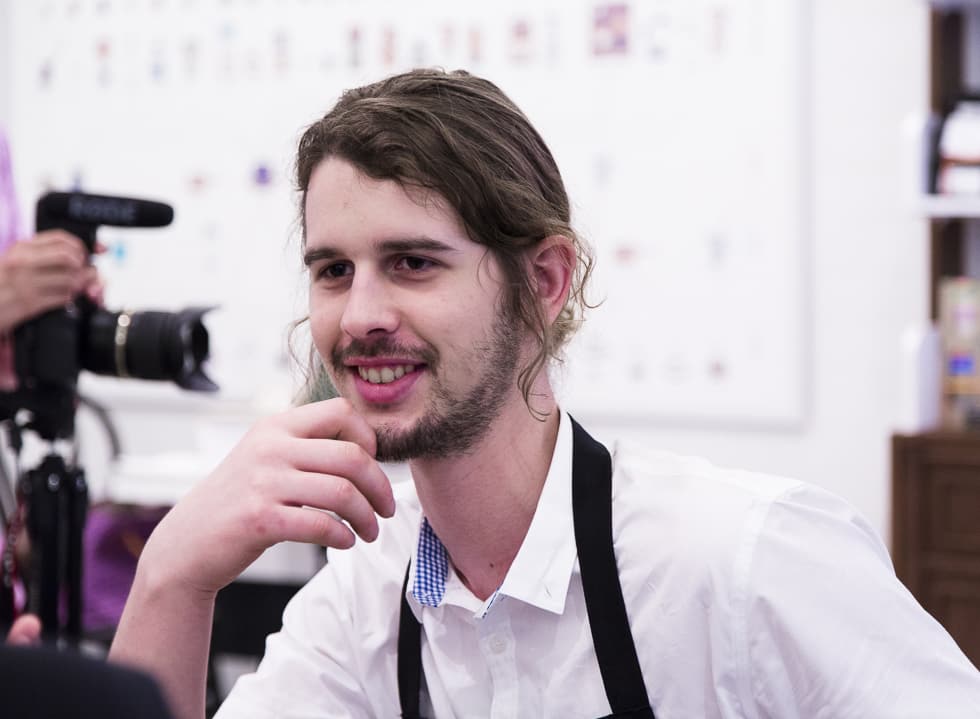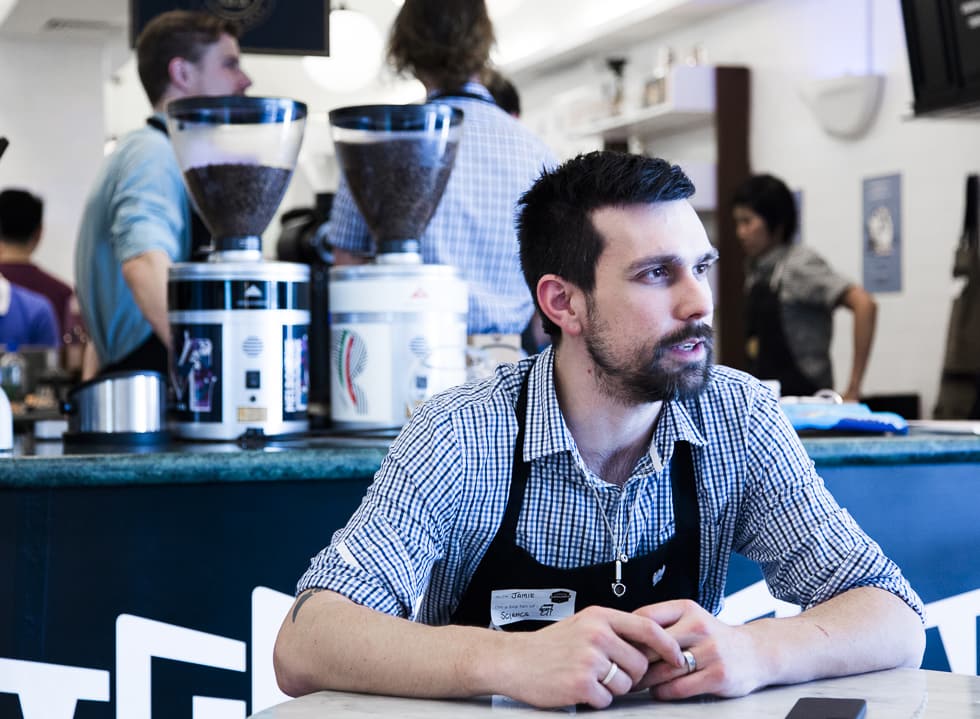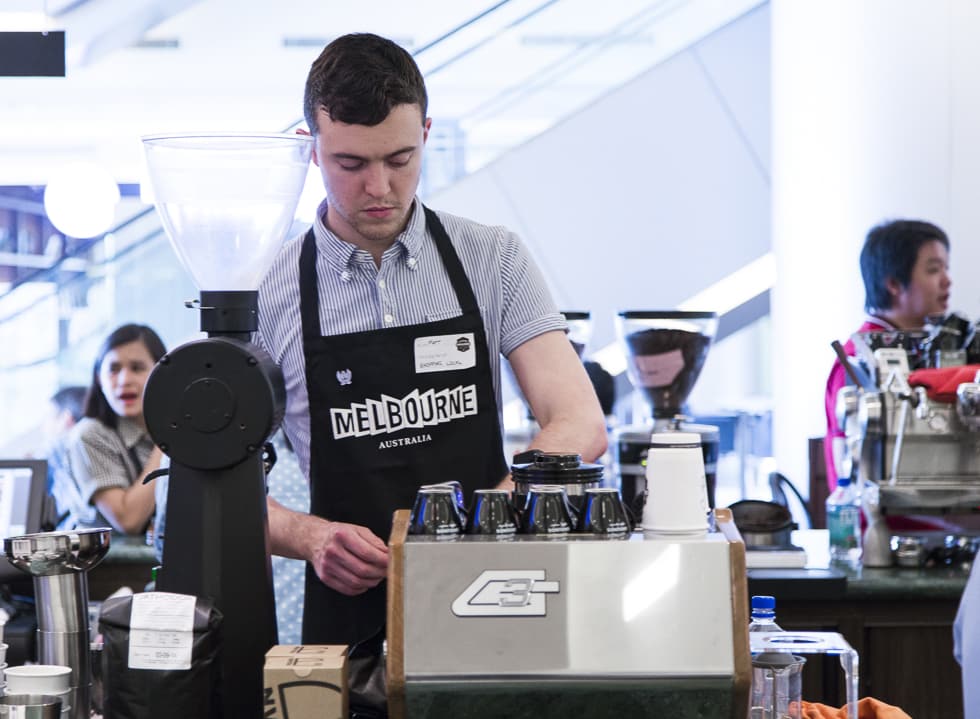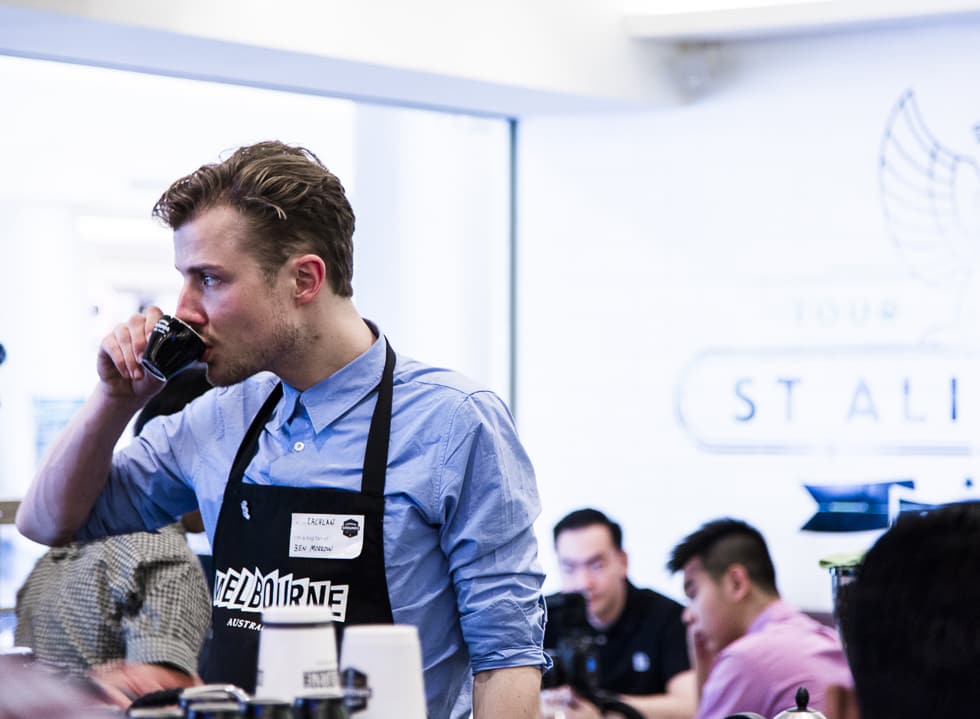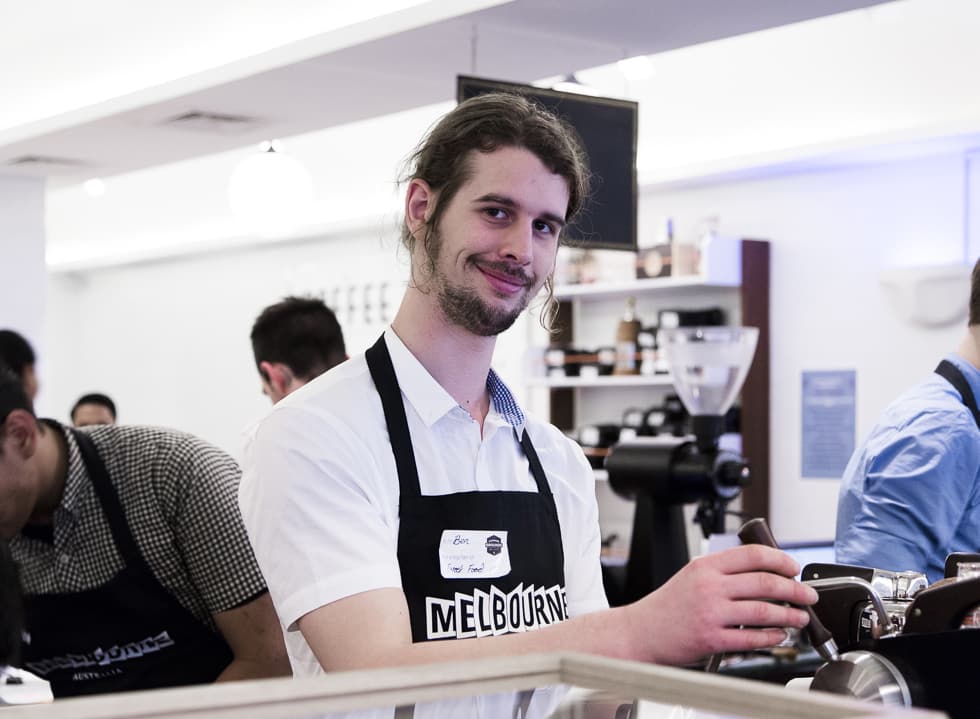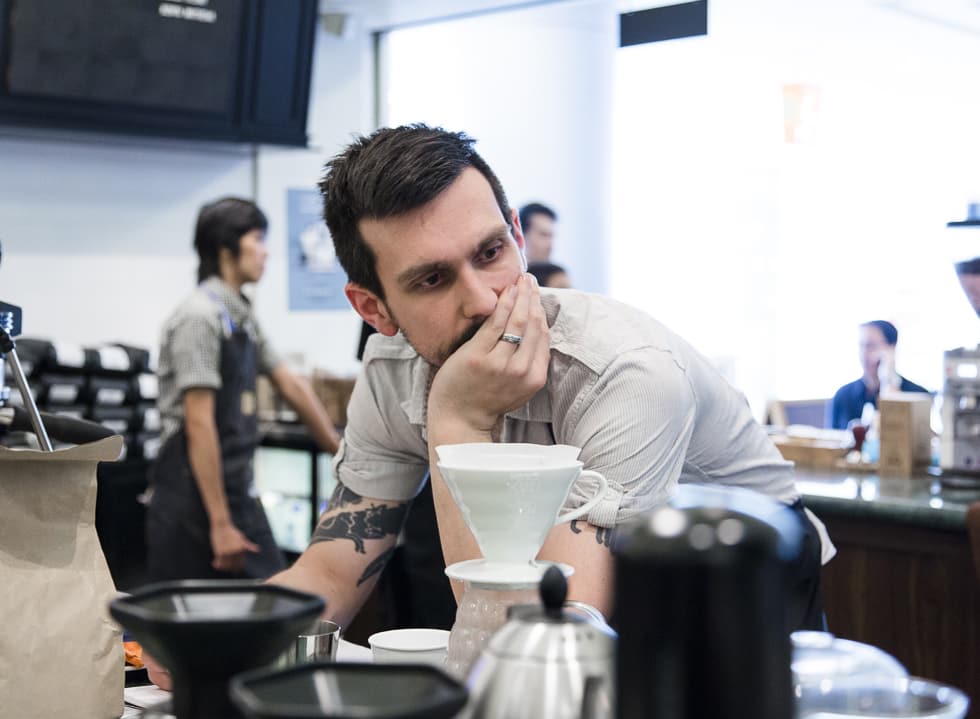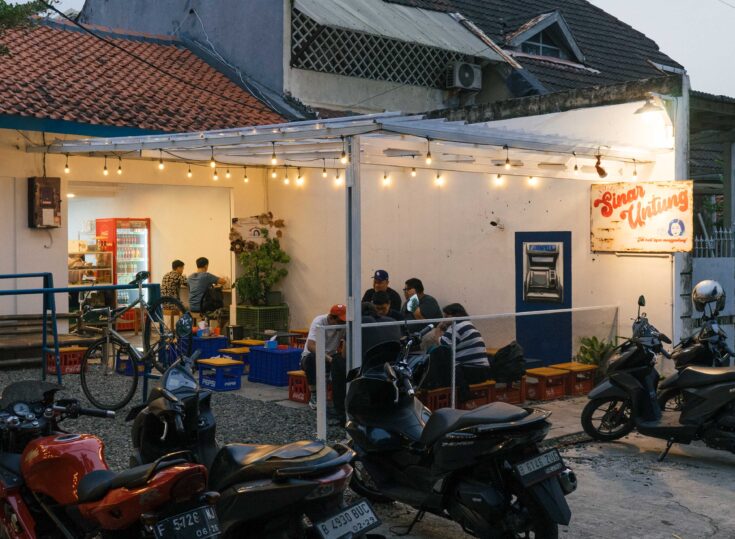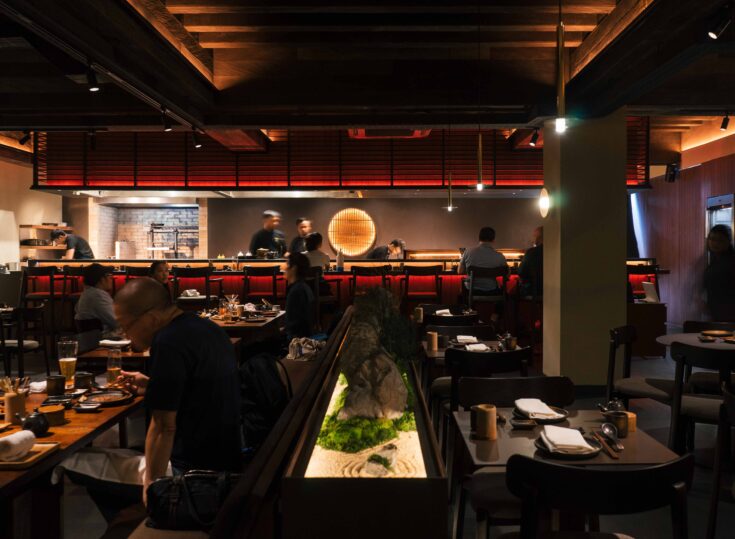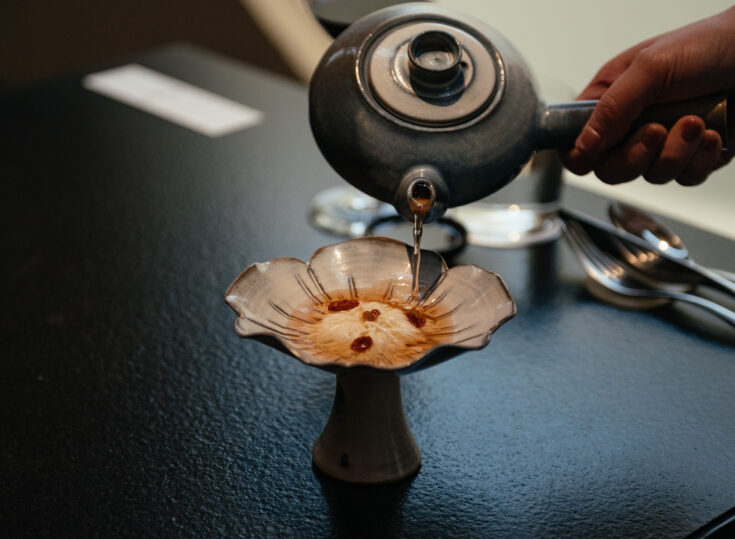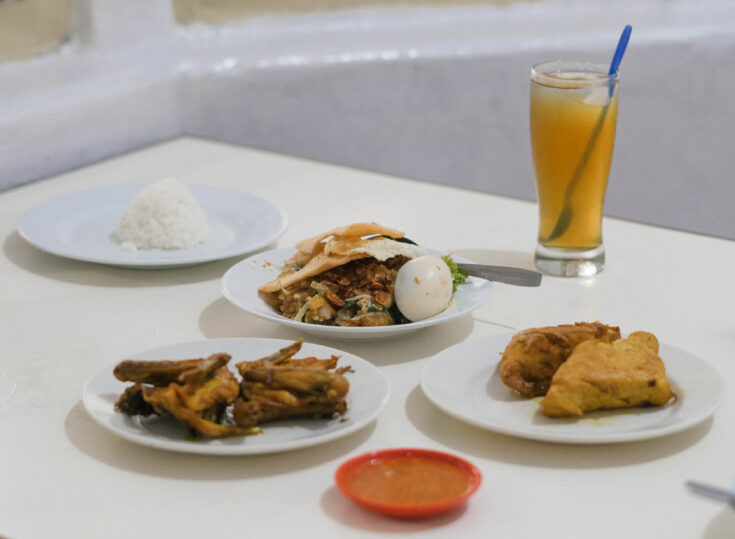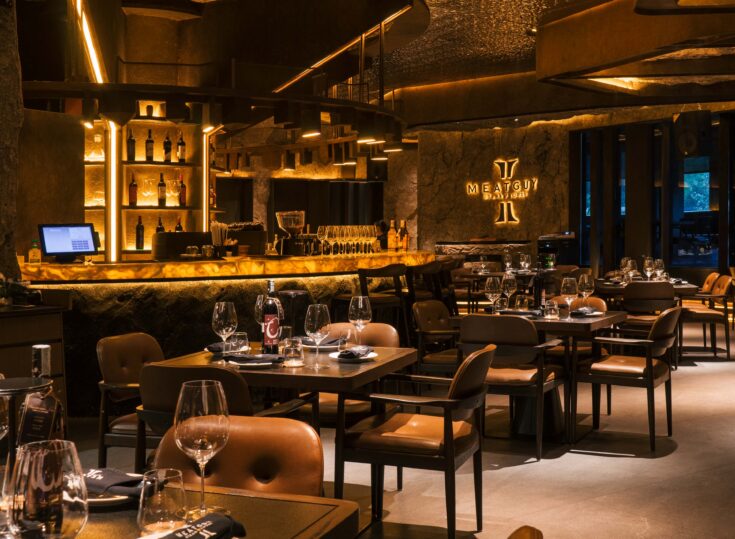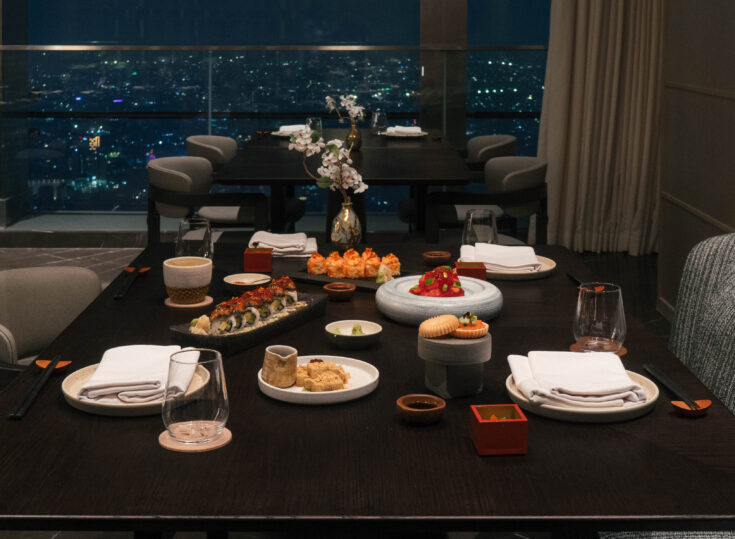Following their recent acquaintance from the Melbourne International Coffee Expo (MICE) and the World Barista Championship (WBC) in Rimini, Italy, the team behind Common Grounds have partnered up with St. Ali from Melbourne, Australia for their first ever pop-up café in Jakarta.
Patrons are not only treated to beans that are specially flown in from Melbourne, they also had the pleasure of having their coffee served by four renowned St. Ali Baristas. Seeing that it’s their first time in Jakarta, we had a little chat with them to find out what they think about the city’s coffee scene.
Matt Perger
Barista and Roaster.
“Even though the industry is very young, it seems as though it’s accelerating much faster than any of the other cities.”
Can you tell us about your responsibility in St. Ali?
I am a barista, roaster and kind of everything to do with coffee at St. Ali in Melbourne. My job is pretty broad, I do lots of different things but they all come under the umbrella of making coffee better. Whether that’s working with baristas or working with roasters, manufacturers, or even coffee growers, I’m trying to do everything I can across the whole spectrum to make coffee more consistent, more delicious and just better in any way possible.
Is Jakarta a huge surprise for you?
No, I travel a lot. Nothing much surprises me but it’s been really great.
Have you guys tried any local food that you love/hate?
Durians! Just terrible, oh my God, it’s just so bad (chuckles), but we’ve been really enjoying, like the other day, Nasi Goreng. Last night, we went to a restaurant called Eastern Oriental and the food was really good, it was great and really powerful flavours.
You guys have done pop-up cafes in Seoul, Milan and London before. Why Jakarta now?
Well, we met Aston, Yanto and Yoshi last year at Melbourne International Coffee Expo. We started talking and they seem to be really passionate and really involved in the same wavelength as us. Then, in Rimini (Italy) this year, at World Barista Championship (WBC), they heard that we did Korea, and thought that it would be a great idea to come over for a pop up. I mean the specialty coffee here is really just taking off, so it’s really a perfect timing for a pop up like this.
What do you think about the specialty coffee scene here in Jakarta and South East Asia in general?
It’s still fairly young but it’s very vibrant and it’s moving very, very quickly. Cities like Melbourne and San Fransisco, they had the first original specialty coffee places, so maybe it was a little bit slower to build up and St. Ali is 10 years old now. Whereas in Jakarta, even though the industry is very young, it seems as though it’s accelerating much faster than any of the other cities because there’s just so much information out there and the techniques are a little bit more developed. So someone from Indonesia can travel around the world, sees something overseas and come back and bring that here very easily.
Do you see any significant difference between Jakarta and Melbourne’s Specialty Coffee scene?
There are two big differences I think. One is the way they make their coffee here, which is still looking at that very intense, heavy syrupy style of espresso, while Melbourne is sort of heading into a lighter, not as intense, and more delicate in style. I guess the other difference is that most of the cafes here are sort of in malls or separated from the city. It’s a little bit different and it’s hard to compare.
Lachlan Ward and Ben Morrow
Operation Manager and Latte Art Specialist (respectively)
“It’s really good to see that Indonesian coffee houses, specialty houses, are using their own coffee.”
Can you tell us about your responsibility in St. Ali?
B: I’m the Latte Art Specialist at St. Ali, so I trained and teach Latte Art.
L: I am the Operations Manager for the St. Ali group. I work with the staff and the managers to help our venues run better.
Have you guys tried any local food that you love/hate?
L: Durians, I hate durians.
B: I think I didn’t have such a rough experience like these guys but I wouldn’t eat that also.
L: Even the thought of durian…
B: I didn’t think that something like durian even existed.
Any plan after Jakarta?
L: We’re definitely going somewhere else. Where next? I’m not so sure where the next one is going to be but I think you’ll see us a lot more around South East Asia and maybe Asia in general. I think it’s such a huge growing area, especially coffee and we love to be a part of it really so in some form, moving around.
B: We’ll be back more for sure!
What do you think about Jakarta Specialty Coffee Scene?
B: It’s really good to see that Indonesian coffee houses, specialty houses, are using their own coffee (Indonesian coffee beans). It’s something that I rarely see, like Australian grind coffee and it’s really good and I think that this will be what drives things forward. Drink wise, Jakarta likes sweet coffee.
L: Yeah, I think it’s kind of like how we would drink our coffee probably four to five years ago – a lot of stronger, shorter, more syrupy espressos. So yeah, considering how we go from a few years ago and I guess different cities that have served specialty coffees are in different stages of development I guess. I mean, Melbourne is kind of forefront in a lot of ways.
Any future plans for St. Ali in Melbourne?
L: At the moment, with St. Ali at least, we are sort of focusing on just what we do at South Melbourne. Obviously, on the coffee side of things, we are always working at being better at what we do. We never sort of satisfied like with what we are doing right now, just trying to make things tastier and better and more consistently better so yeah, in terms of the expansion maybe, we’re always looking for the right sides and sort of the right people to do things with just like this.
Any final words?
L: We’ve had such a nice welcome and it’s so cool to come overseas. It’s really humbling and it’s so nice to be able to share what we do with everyone and we really appreciate it so much.
Jamie Thomson
Bar Manager
“I mean be happy at what you’re doing but not be happy at the same time, like can I do more?”
Can you tell us about your responsibilities as the bar manager in St. Ali?
I serve as the bar manager or the head barista, so I am in charge of operations and quality control over all the drinks. Also I work with the guys in the roastery, especially when new coffee comes in and the quality control that comes with it as well.
Have you tried local food?
Yeah, we’ve been eating out a lot. We want to try everything and the food is really good.
Did you try the durians?
Yeah and I didn’t mind it. Not as much as the other guys who didn’t really like it as much. (chuckles)
Other than local food, how was your experience in Jakarta so far?
It’s good. It’s eye opening to see how the city operates. There are just so many people and it’s so busy all the time and I guess it’s a bit different. Most shops and most cafes here are on street level and that pretty much everything is in malls. So that was like a kind of different thing. You can’t really walk from place to place. I mean in Melbourne, we are really lucky because our city is so small that you can just walk everywhere whereas here, oh, you need to kind of drive.
The culture as far as we’ve seen for the past couple of days, people tend to come a bit later. In Melbourne, people come first thing in the morning. Here’s like, in the morning, it’s pretty quiet and then comes lunch time and it gets busier.
Could you tell us more about your experience from pop-up café overseas?
You know, coffee is such an international thing, like every country drinks coffee and it’s really good to come here which is a producing country as well so I found that really interesting and good that most of the cafes are serving Indonesian coffee and even when we got here, these guys are using a lot of Indonesian coffees but also, a lot of coffees from elsewhere as well.
Talking about Indonesia as a producer of coffee, do you notice any significant difference between the specialty coffee scenes here in Jakarta with the one in Melbourne?
Yeah, two days ago, we went for a little cafe hopping and it’s really good. You can see that it’s still in its infancy and you can see a lot of the struggles that the operators have. A bit like what we’ve had in the past, when you want to make that step from the commercial coffee to specialty coffee and really encourage customers that coffee can have that quality scale and be more expensive.
It’s really great that every place that we have gone to has been able to tell you every coffee that’s in their coffee. Two to three years ago, cafes in Melbourne were still a bit secretive about where do they get their coffee from or they might just say this is a Columbia single origin, but they don’t actually give you that information. But now, you see things like farms, the farmer’s name, and what sort of variety of coffee as well. You know, like when we got here, one of the things that we noticed the guys (Common Grounds) have here is the Panama Esmeralda Geisha. And Geisha is just one of those coffee that really makes people notice how the varietal can actually change its flavour.
We’ve received good receptions about our coffee so far, which is good, especially after noticing what other cafés are doing – the espresso is a lot shorter, stronger and more syrupy. That’s what people were expecting when we came. You know, we don’t want people to be offended by what we do and there’s been a really good response so far.
What are your hopes and expectations for the specialty coffee scene here in Jakarta?
We understand that it has to evolve organically and one thing we’re not going to see when we leave Jakarta is that people will completely change what they are doing. It’s got to be an organic process, we can’t force things on people. I’ve been in St. Ali now for two and a half years and that if you look at where we started and where we are now, it’s a big change, but it’s been incremental and really organic change and yeah, that’s what I really hope to see in Jakarta.
I hope that what these guys take away from this is that “Could it be different?” Always strive to push through boundaries and really do more. I mean be happy at what you’re doing but not be happy at the same time, like can I do more?
